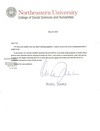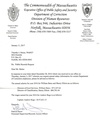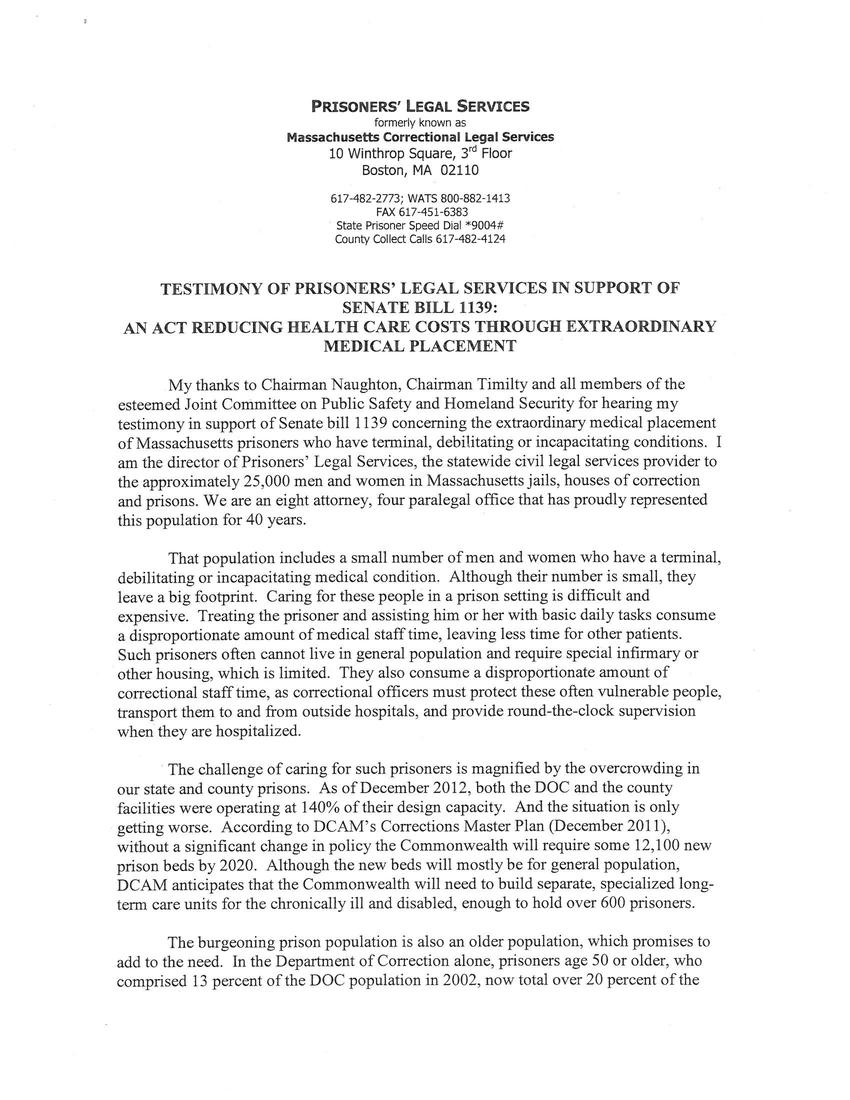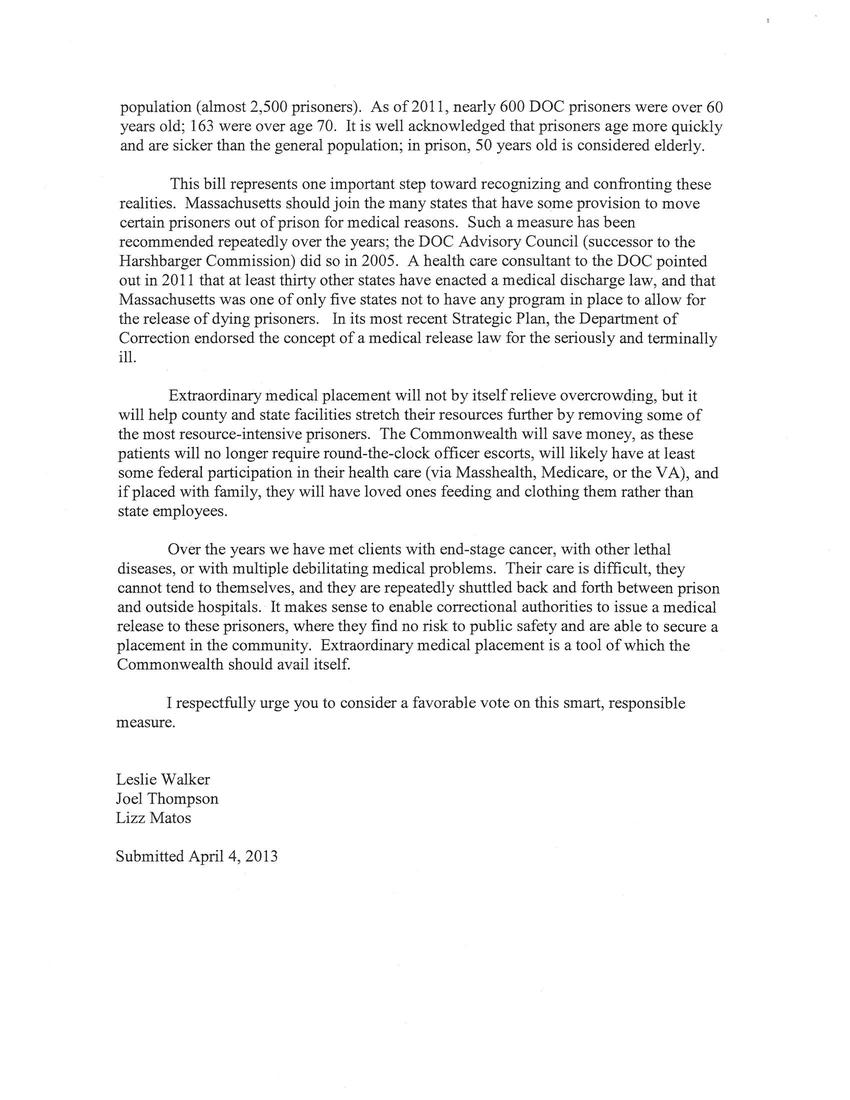
Transcription
PRISONERS' LEGAL SERVICES
formerly known as
Massachusetts Correctional Legal Services
10 Winthrop Square, 3rd Floor
Boston, MA 02110
617-482-2773; WATS 800-882-1413
FAX 617-451-6383
State Prisoner Speed Dial *9004#
County Collect Calls 617-482-4124
TESTIMONY OF PRISONERS' LEGAL SERVICES IN SUPPORT OF SENATE BILL 1139:
AN ACT REDUCING HEALTH CARE COSTS THROUGH EXTRAORDINARY MEDICAL PLACEMENT
My thanks to Chairman Naughton, Chairman Timilty and all members of the esteemed Joint Committee on Public Safety and Homeland Security for hearing my testimony in support of Senate bill 1139 concerning the extraordinary medical placement of Massachusetts prisoners who have terminal, debilitating or incapacitating conditions. I am the director of Prisoners' Legal Services, the statewide civil legal services provider to the approximately 25,000 men and women in Massachusetts jails, houses of correction and prisons. We are an eight attorney, four paralegal office that has proudly represented this population for 40 years.
That population includes a small number of men and women who have a terminal, debilitating or incapacitating medical condition. Although their number is small, they leave a big footprint. Caring for these people in a prison setting is difficult and expensive. Treating the prisoner and assisting him or her with basic daily tasks consume a disproportionate amount of medical staff time, leaving less time for other patients. Such prisoners often cannot live in general population and require special infirmary or other housing, which is limited. They also consume a disproportionate amount of correctional staff time, as correctional officers must protect these often vulnerable people, transport them to and from outside hospitals, and provide round-the-clock supervision when they are hospitalized.
The challenge of caring for such prisoners is magnified by the overcrowding in our state and county prisons. As of December 2012, both the DOC and the county facilities were operating at 140% of their design capacity. And the situation is only getting worse. According to DCAM's Corrections Master Plan (December 2011), without a significant change in policy the Commonwealth will require some 12,100 new prison beds by 2020. Although the new beds will mostly be for general population, DCAM anticipates that the Commonwealth will need to build separate, specialized long-term care units for the chronically ill and disabled, enough to hold over 600 prisoners.
The burgeoning prison population is also an older population, which promises to add to the need. In the Department of Correction alone, prisoners age 50 or older, who comprised 13 percent of the DOC population in 2002, now total over 20 percent of the population (almost 2,500 prisoners). As of 2011, nearly 600 DOC prisoners were over 60 years old; 163 were over age 70. It is well acknowledged that prisoners age more quickly and are sicker than the general population; in prison, 50 years old is considered elderly.
This bill represents one important step toward recognizing and confronting these realities. Massachusetts should join the many states that have some provision to move certain prisoners out of prison for medical reasons. Such a measure has been recommended repeatedly over the years; the DOC Advisory Council (successor to the Harshbarger Commission) did so in 2005. A health care consultant to the DOC pointed out in 2011 that at least thirty other states have enacted a medical discharge law, and that Massachusetts was one of only five states not to have any program in place to allow for the release of dying prisoners. In its most recent Strategic Plan, the Department of Correction endorsed the concept of a medical release law for the seriously and terminally ill.
Extraordinary medical placement will not by itself relieve overcrowding, but it will help county and state facilities stretch their resources further by removing some of the most resource-intensive prisoners. The Commonwealth will save money, as these patients will no longer require round-the-clock officer escorts, will likely have at least some federal participation in their health care (via Masshealth, Medicare, or the VA), and if placed with family, they will have loved ones feeding and clothing them rather than state employees.
Over the years we have met clients with end-stage cancer, with other lethal diseases, or with multiple debilitating medical problems. Their care is difficult, they cannot tend to themselves, and they are repeatedly shuttled back and forth between prison and outside hospitals. It makes sense to enable correctional authorities to issue a medical release to these prisoners, where they find no risk to public safety and are able to secure a placement in the community. Extraordinary medical placement is a tool of which the Commonwealth should avail itself.
I respectfully urge you to consider a favorable vote on this smart, responsible measure.
Leslie Walker
Joel Thompson
Lizz Matos
Submitted April 4, 2013
Other posts by this author
|
2017 jun 24

|
2017 jun 24

|
2017 jun 24

|
2017 jun 24

|
2017 jun 18

|
2017 jun 15

|
More... |



Replies